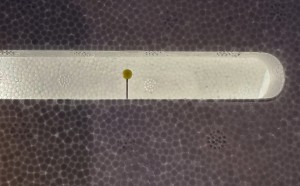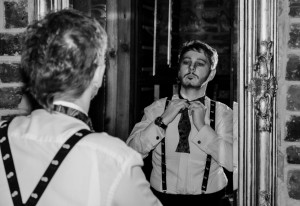“Where does it start?” TORCH by ANU – Reviewed
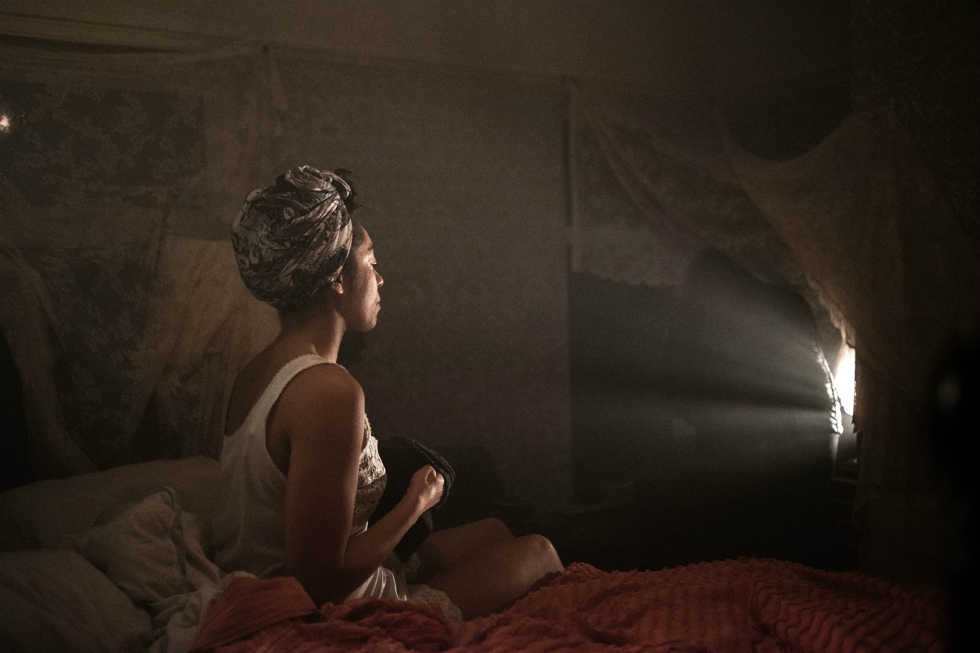
What histories, memories and hopes does a place hold? And how can what we do now shape the future? C. James Fagan ruminates on performance piece TORCH…
I’m travelling to St Helens in order to review a performance piece entitled TORCH. I haven’t delved deeply into what the piece is about, preferring to be surprised by what I could encounter tonight. In pragmatic terms, and using the description on the Heart of Glass website (the programmers of this piece): “The show is an immersive promenade production in non-traditional performance spaces.”
That’s the form of it. I’m no stranger to this style of performance or theatre. I think the difficultly I have in writing about it stems from a desire not to give away too much. Not to mark anyone’s expectations of the piece. To avoid spoilers, as it were.
The nature of what is about to unfold means so much of this is drawn from memory. No notes. No handy reference sheet to refer to.
Where does it start? Well, TORCH is the result of two years’ development and research into the history of St Helens.
For me, however, it starts in St Helens Central train station. Or did it start with the journey here? I arrive in St Helens hours before the performance begins; in a place I’ve not visited in nearly twenty years, despite living just over ten miles away. Walking around the town, I feel a strange dislocation, it is at once familiar and yet alien.
Like there are massive gaps in my knowledge, like I’ve forgotten something.
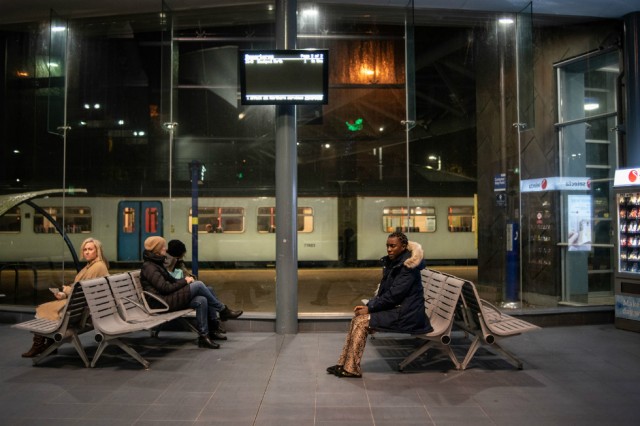
In retrospect I can see this reflected in TORCH, as it contains themes of remembrance, memory and history. Maybe I’m getting ahead of myself. Back to the start of the performance, back to the train station. I’m placed in a very specific location of the waiting area, paired with a stranger. We’re an audience of two.
The piece begins, subtly – there’s no real way to differentiate between the real and performed. A stranger approaches and asks for change for the vending machines, not uncommon. Soon after this another woman turns up frantic, looking for someone; without truly questioning it, we follow this woman and her task in locating a lost asylum seeker and dealing distantly with her daughter’s Christmas party.
Stranger still, we are driving around town in a stranger’s car.
We arrive at a house, unmarked for reasons of security. We enter and it’s in darkness as our guide looks for a fuse box. Through a window I glimpse a figure, a young woman performing a manual task (hammering). An apparition, it disappears as quickly as it appeared.
Lights come on.
Our guide, a social worker, care worker, cheerfully informs us that this is the house she grew up in. Personal, social histories are colliding.
Things change. Another player enters: the apparition. She quickly and secretively leads me to an upstairs room. To another history. Dreamily she tells me her story. Of her freedoms offered to her by the Second World War, experiences previously unopened to her. She embraces them.
But not without a sense of guilt, given the circumstances these opportunities have arisen from.
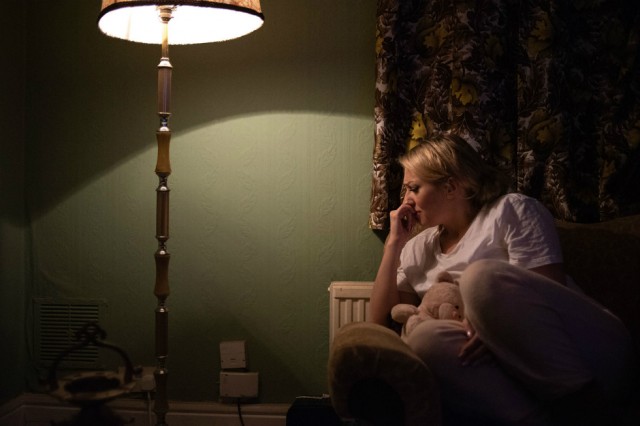
Then it’s a return to the living room, and another shift in time. It’s Christmas 1984. The audience has doubled and we’re all caught in a domestic argument. Recriminations, pain and loss stemming from the recent past, the lines drawn up and crossed during The Miners Strike.
There’s a slanging match between our guide and an older woman. There’s a third woman devastated by the removal of her children curled up on a coach. Her story is a separate narrative not totally known to me.
My role in all of this is both observer and participant. I sit there on a small footstool, awkwardly. Not unlike a small child watching parents fight, involved yet removed. This is what this small audience is like. On the edges, like time travellers sent here to watch – observe, but do not interfere.
This scene is broken up when my companion and I are whisked into the kitchen to watch the Queen’s Speech on a black and white portable TV. An older woman, in her Christmas best, tells us her story. The heart break of being unable to see members of her family, despite living a few streets away – a political and ideological divide is in place. A domestic Cold War. During this, images of Charles and Diana and their young family play, almost mockingly, on the TV.
There are points where you want to offer something. Some kind of comfort, even if it’s just platitudes. This comes of course through the performances and also through the heightened sense of intimacy. There is no fourth wall to hide behind.
Still you have to tell yourself, not to interfere, not to break the flow.
Flow we do, back into the living room/dining room. Seated at the dinner table. The woman who we were searching for back at the beginning is there on the coach. Looking lost, disjointed. I mean, if someone like me who comes from the same society and same place can feel dislocation, then how much must that be amplified for anyone who must leave so much more behind?
The sense of physical and mental dislocation is expressed through movement. She moves frantically, desperately through the space, between the audience. As if these spaces and people can be remoulded by her movements.
It’s too much for her, this space and its history. She flees. We set off after her only to collide with another narrative. Almost literally: as I’m about to step out of the door, someone whizzes past. Outside we are greeted by the woman from the war again (the one I had an individual performance with). She is enthusiasm and joy, she talks about her love of the cinema, of work, of her own abilities and stamina (she’s still going after a 19 hour shift).
We’re on the way to the Hippodrome, where we move through the Saturday night punters, there for bingo. Who is ignoring who? We arrive at a tea bar, her second job; here she speaks of the future. Elegantly placing cups and saucers on the counter as if they were the elements of her life, as if they were the future. This is where the performance ends on a downbeat, yet hopeful, note. There is pathos but promise too. The future is still unwritten, still contains hope.
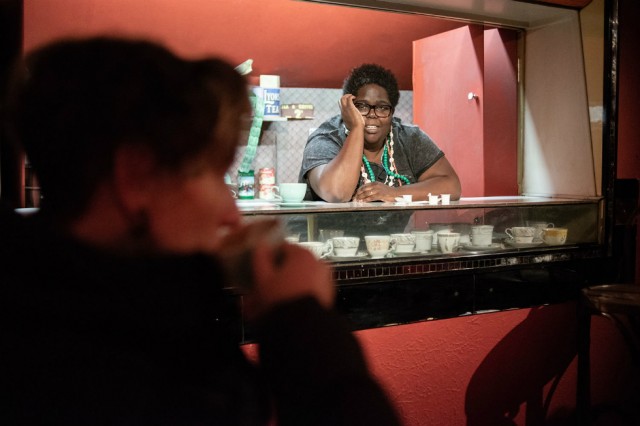
After this there is a coda. We are offered a cup of tea and the chance to have our fortunes read. Our fortune teller speaks to us about the paths life can take. The ‘sliding door’ moments, how this shapes us and how we have a say in shaping the future. I like this part; it offers a chance to reflect, to decompress. Often in other performances in this style you can be ejected from it. Here we are enabled to talk our experiences through with other members of the audience.
Though it’s not quite over yet. On returning to the train station, I’m able to catch the start of the next performance. From platform two I witness the events I was once a part of unfold. Again it’s like I’ve jumped back in time. Though on this occasion I get a different perspective. The woman who fled the house has arrived, she dances in front of an information screen then disappears to find her audience.
I turn around to see if any of my fellow passengers saw this. They appear not to have. I almost wonder if I did myself. Like a memory, like the stories of all the women I met tonight, it merges into the now, into the noise and travel of a Saturday night.
C. James Fagan
Performances of TORCH run until Saturday 1 December



